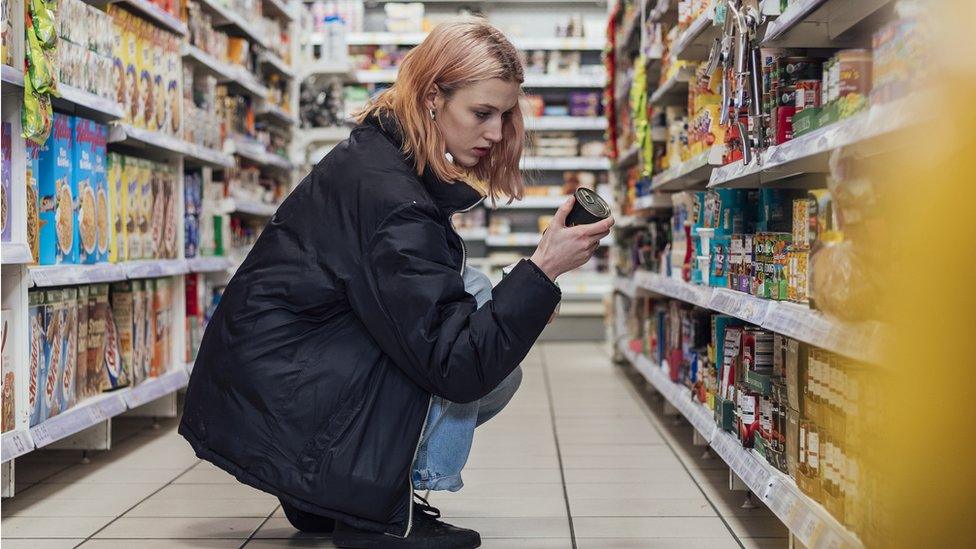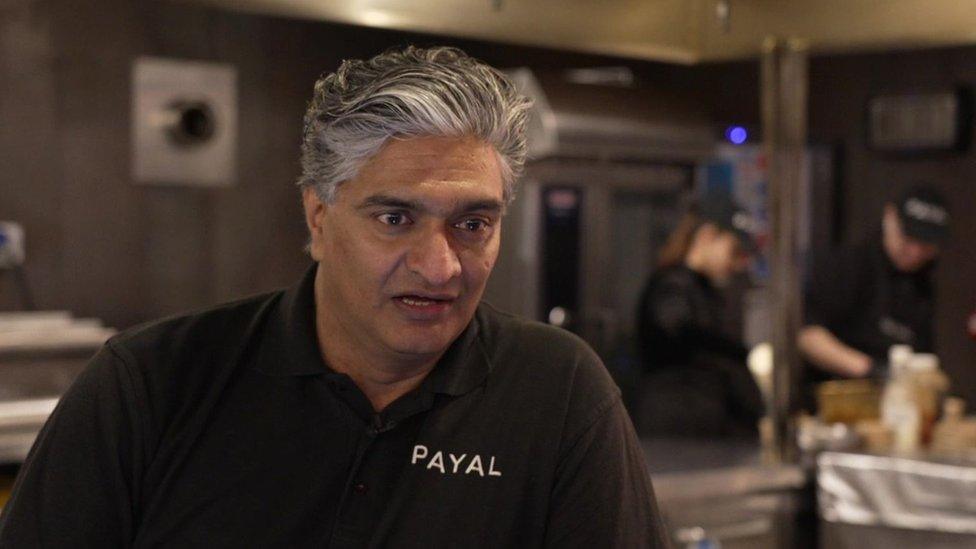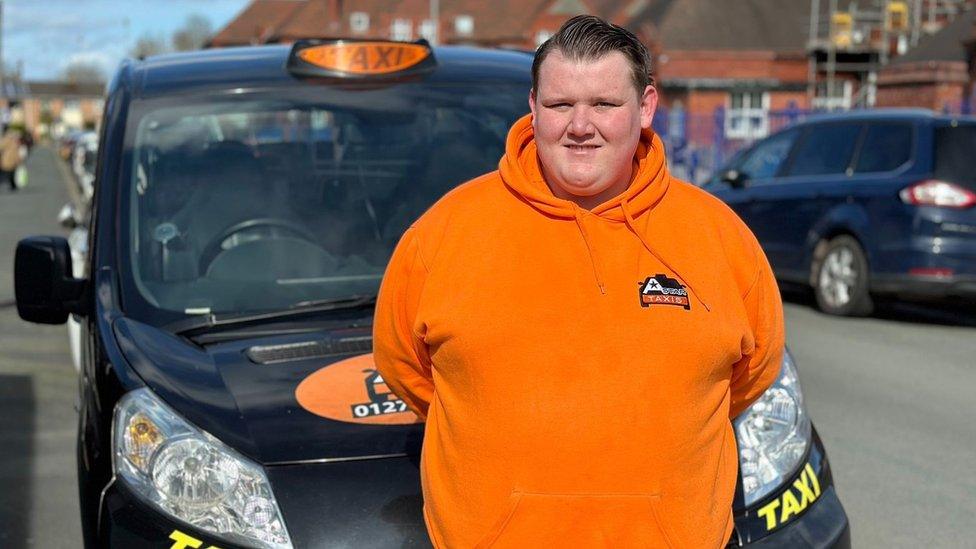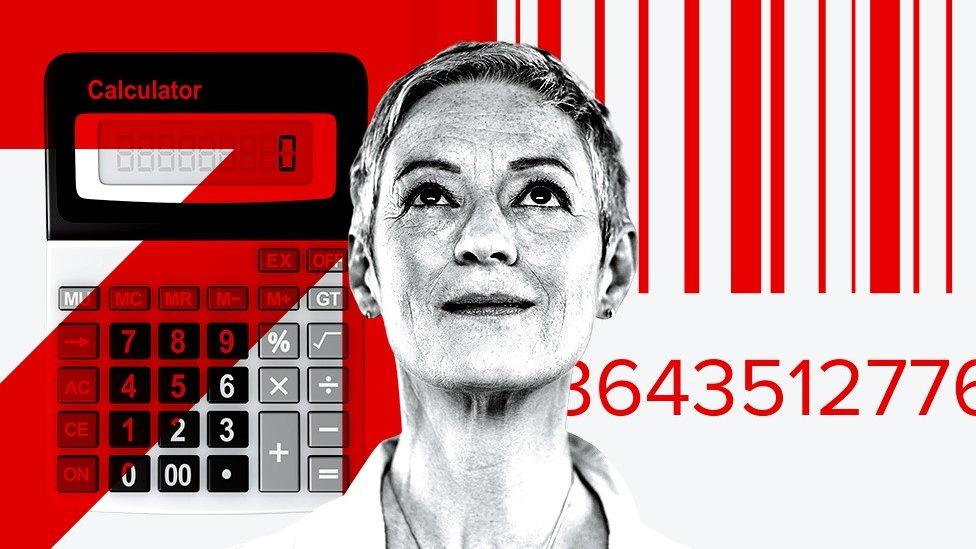UK inflation falls as food and eating out costs ease
- Published
- comments

The rate of inflation fell to its lowest level in almost two and a half years last month as price rises for food and eating out slowed sharply.
February's drop to 3.4% from 4%, external means the cost of living is rising at its slowest pace since September 2021.
Food and non-alcoholic drinks, cafes and restaurant prices drove the fall, but alcohol, tobacco, clothing and footwear prices also eased.
However, housing and fuel prices continued to rise rapidly.
One of the key factors driving up housing costs was the average price of renting property privately, which jumped by 9% in the year to February 2024, up from 8.5% in the previous 12 months. This is the biggest annual percentage change since measurements began in January 2015.
Inflation, the rate at which prices rise over time, has been gradually falling since it hit 11.1% in October 2022, its highest rate for 40 years.
However, prices are not yet falling they are just rising less quickly than they were previously.
"That's 11 consecutive monthly falls... the general trend continues to be lower," Grant Fitzner, chief economist at the ONS, said.
However, speculation about an impact on prices as a result of disruption in the Red Sea had not materialised, mostly because the rate of sterling had increased and the UK's ability to pay for imports had improved, he said.

Fritz Ali Khan owns Indian street food business Payal Events in Manchester, but with less disposable income "fewer people are coming out to spend on places like this," he said.
Staff wages had increased because of the cost of living and with the rising cost of ingredients, running the business had become a challenge, he told the BBC.
"Our commercial butcher told us the lamb will go up £1 a kilo… the conversation was are we okay with that, not can we do something. So for the next month we kind of have to absorb that."

Over in Crewe, Shaine Ashley Tench runs A Star Taxis. He recently received a quote to insure his fleet which he said he "could not believe".
"It just knocked me back so much," he said. "We can't just put that onto the customers' price, because we need to be an affordable, reliable taxi company in this area. And if we put our prices up then it goes against what we believe in."
He says he'll have to find a solution to the problem, although he hasn't yet got an answer. But he says that any expansion plans might be put on hold because of the additional costs.

How can I save money on my food shop?
Look at your cupboards so you know what you have already
Head to the reduced section first to see if it has anything you need
Buy things close to their best before date which will be cheaper and use your freezer
Read more tips here

The figure comes ahead of the Bank of England's latest interest rate decision on Thursday, which is expected to see rates held at 5.25%.
Although the fall in the energy price cap next month is likely to drive further declines in the overall inflation rate, many households will also see a range of above-inflation price rises in the new financial year.
Water rates, mobile phone and broadband prices, for example, will all be going up, linked to previous higher rates of inflation. Car insurance prices for drivers are also surging, a legacy of previous peaks in inflation.
Chancellor Jeremy Hunt said people would "heave a sigh of relief" at the inflation figures but insisted it was "far too early to know" whether the government would be in a position to cut taxes before the general election.
However, he added: "As inflation gets closer to its target that opens the door for the Bank of England to consider bringing down interest rates, that brings down mortgage rates, that makes a very big difference."
But Labour said after 14 years under the Conservatives, "working people are worse off".
"Prices are still high, the tax burden is the highest it has been in 70 years and mortgage payments are going up," shadow chancellor Rachel Reeves said.
- Published17 July 2024

